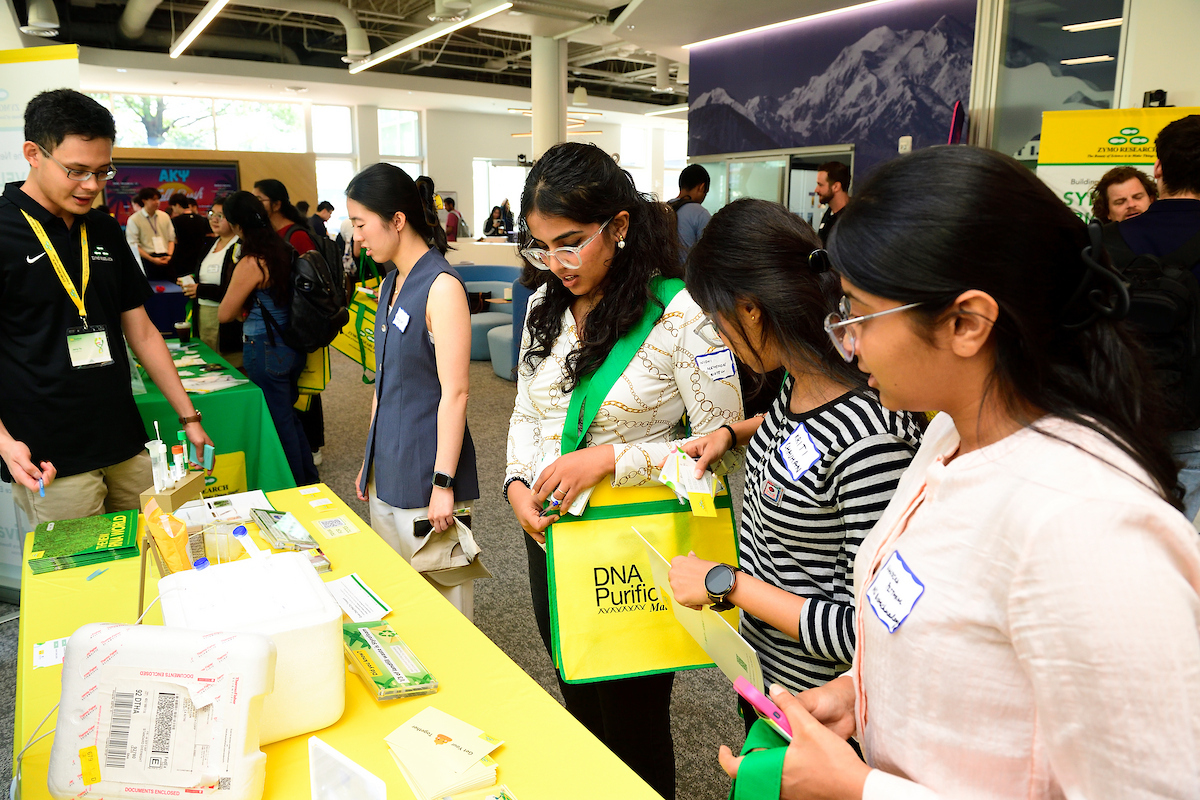On September 12, 2025, Zymo Research, in collaboration with Johns Hopkins University, hosted its third BioFestival event, uniting students, faculty, and industry partners for a day of scientific exchange, disruptive research, and sustainable innovation. Building on the momentum from earlier BioFestival events at USC and Caltech, the Johns Hopkins gathering continued to foster scientific creativity, collaboration, and entrepreneurship by spotlighting the next generation of life science leaders. It provided a platform for early-career scientists to present their work, access advanced tools and resources, and demonstrate how novel ideas can address pressing health and environmental challenges.
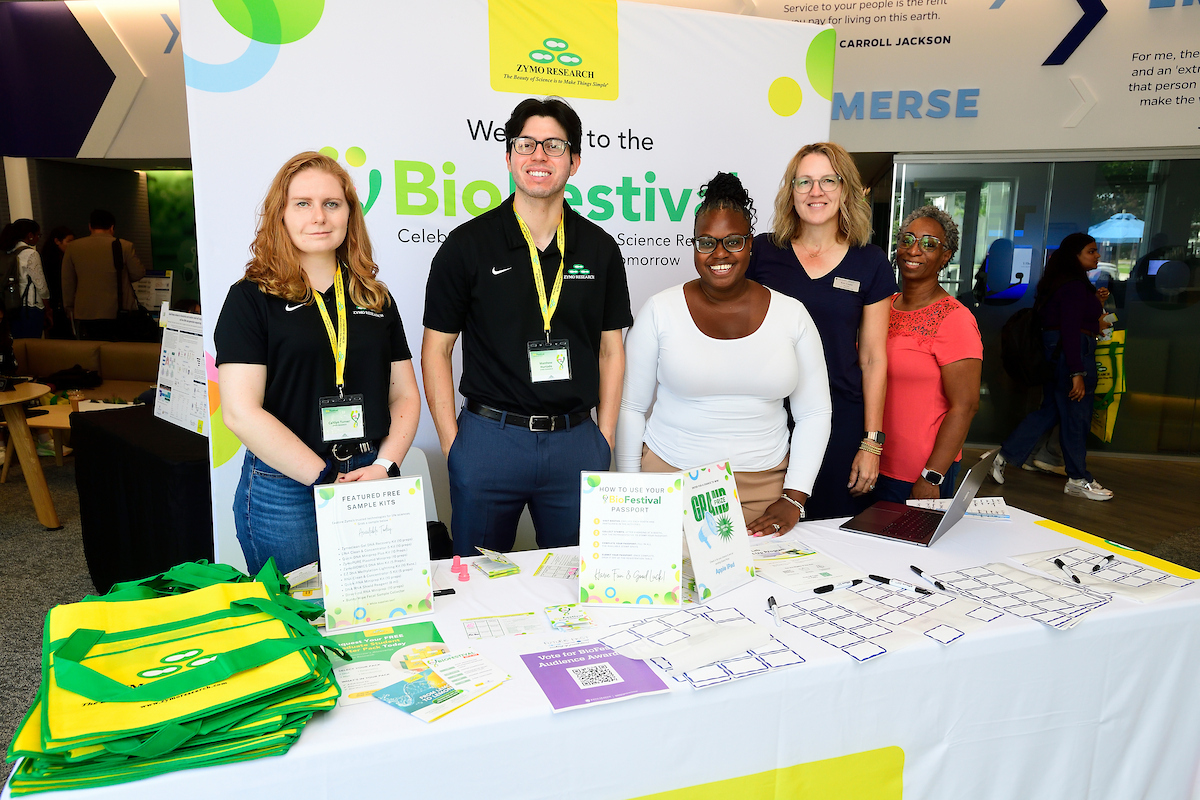
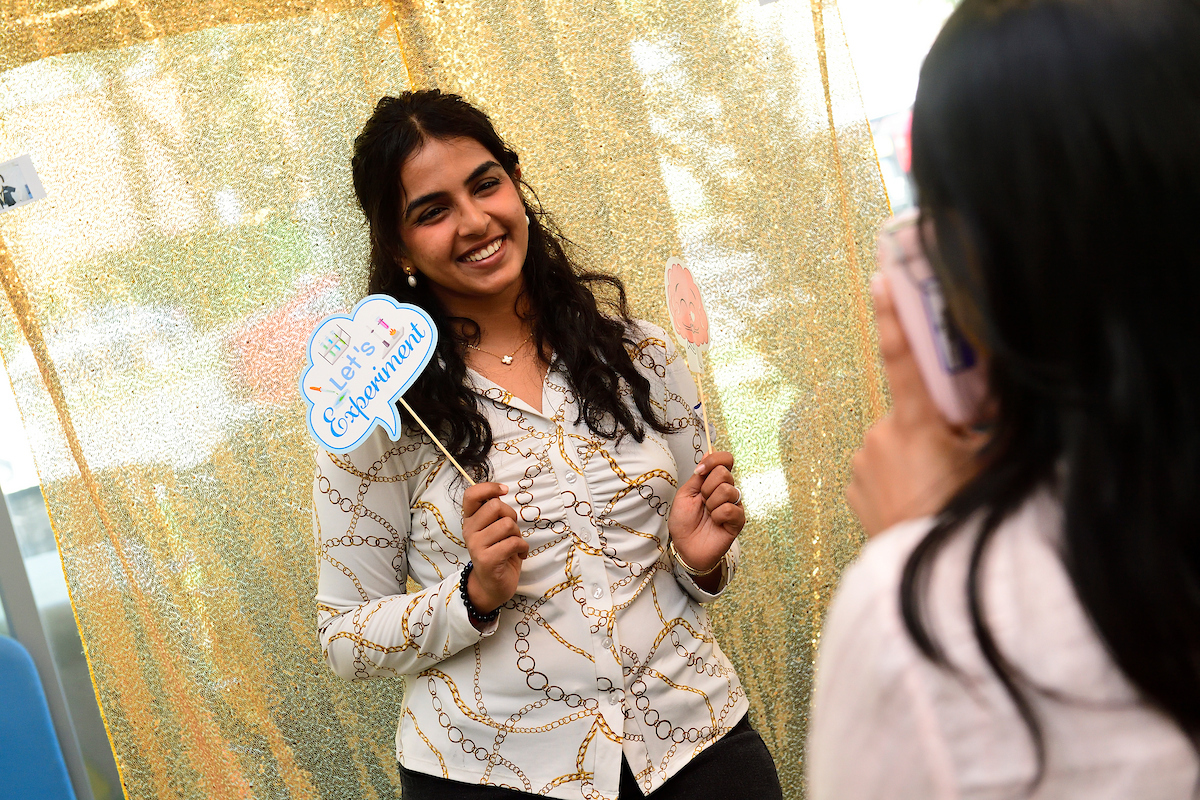
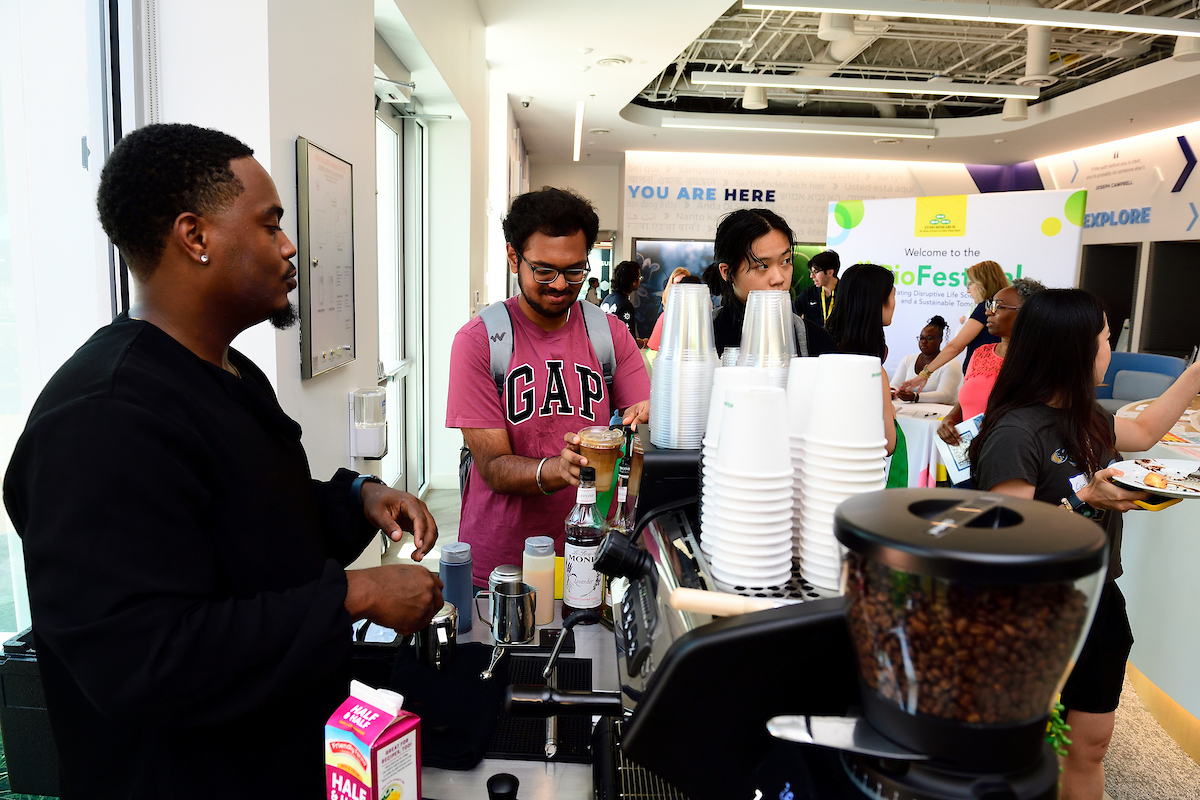
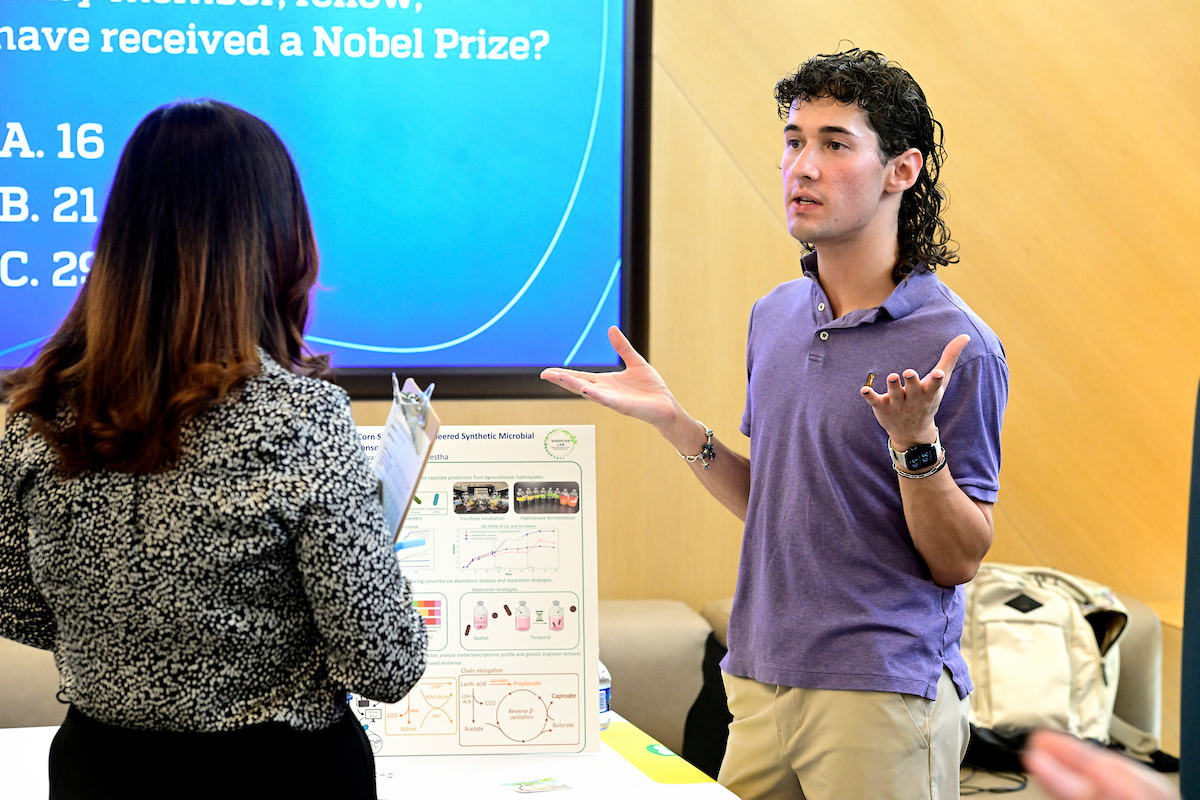
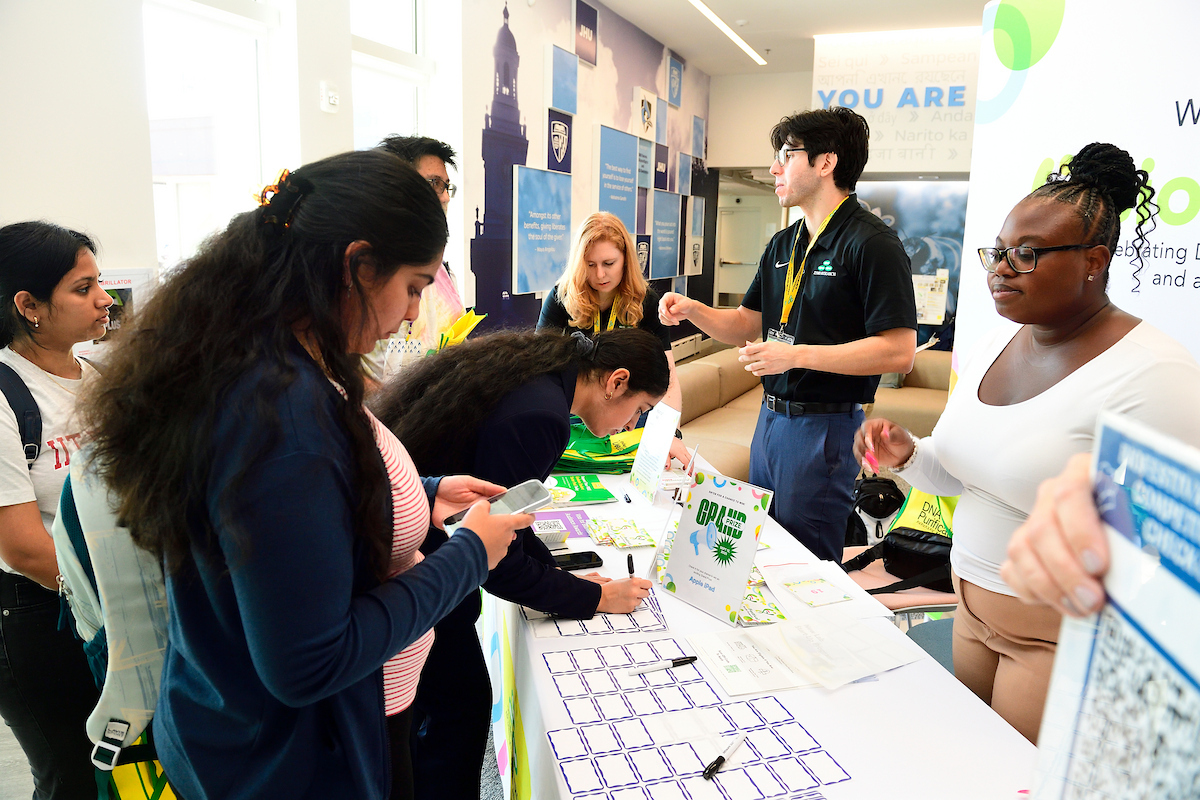
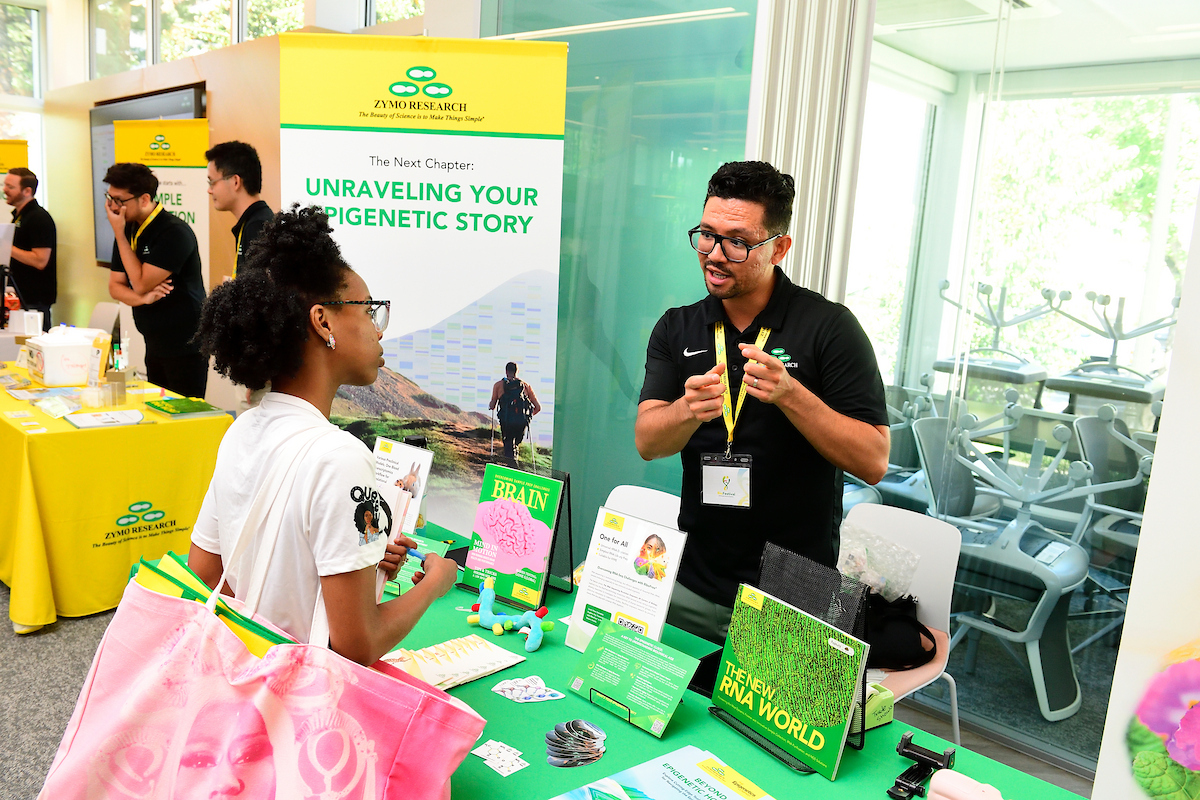
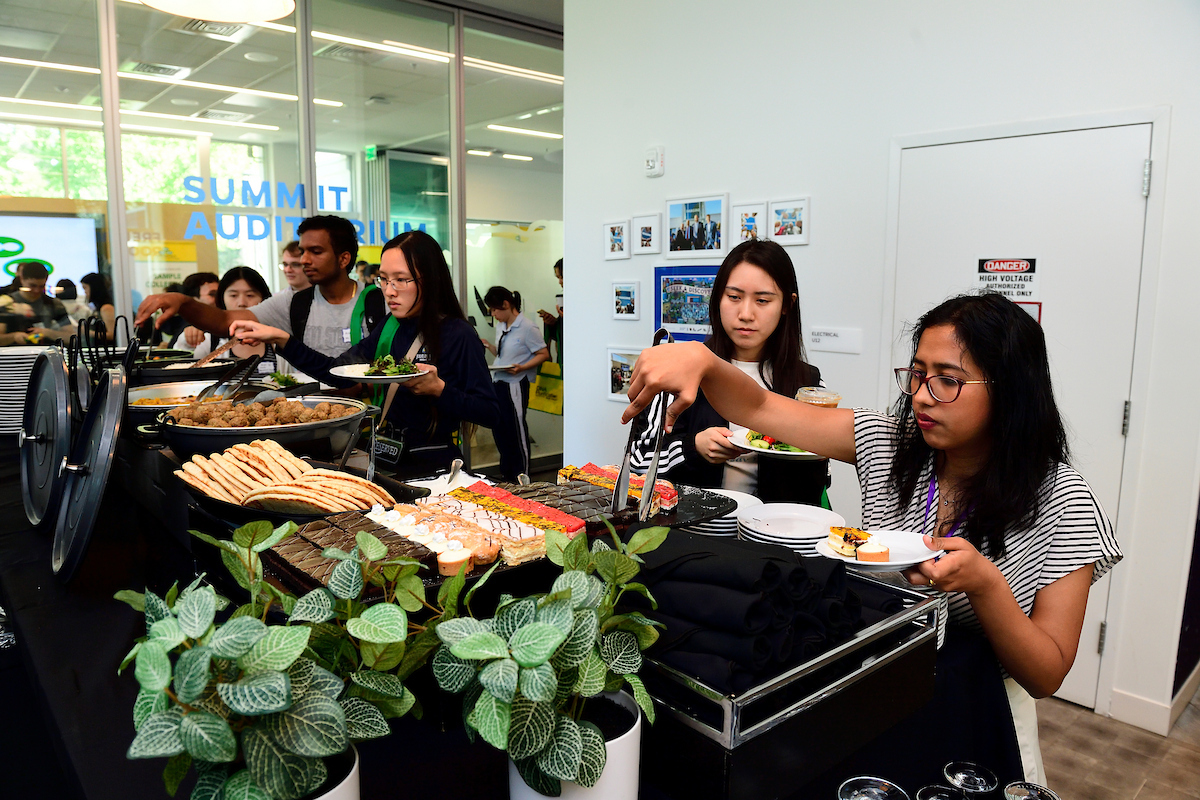
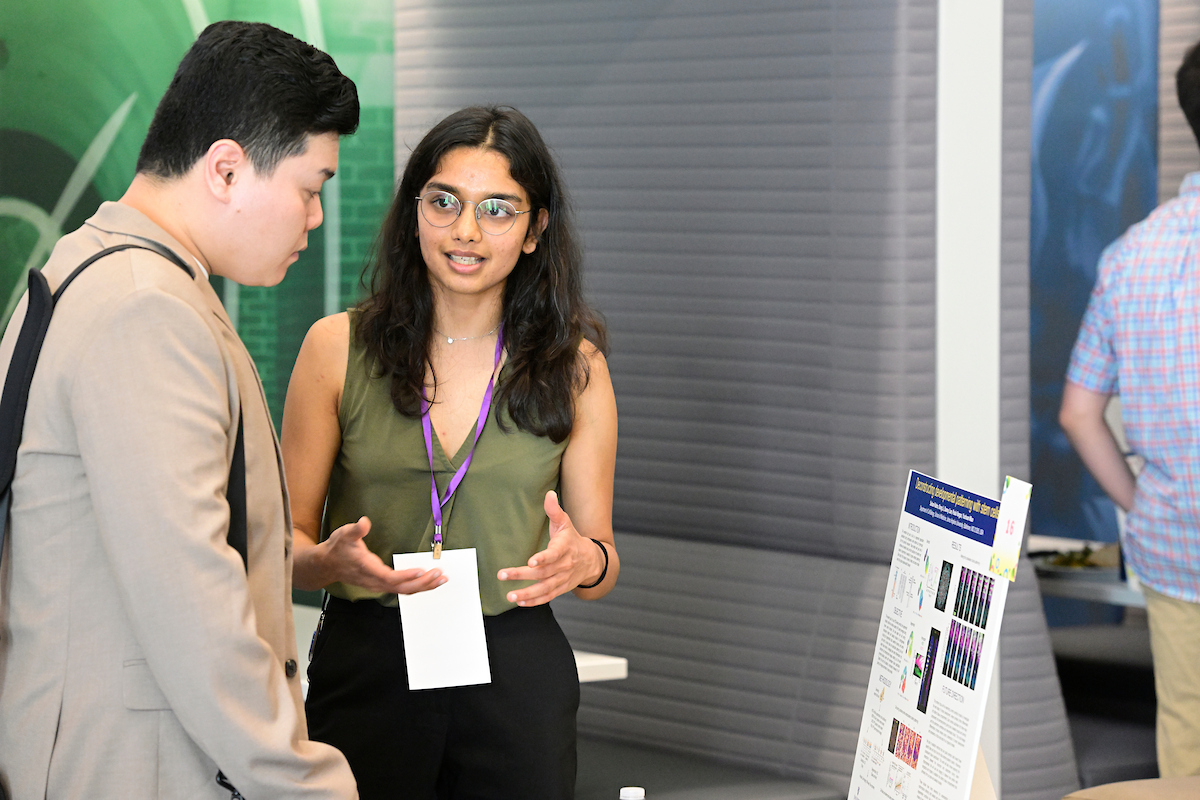
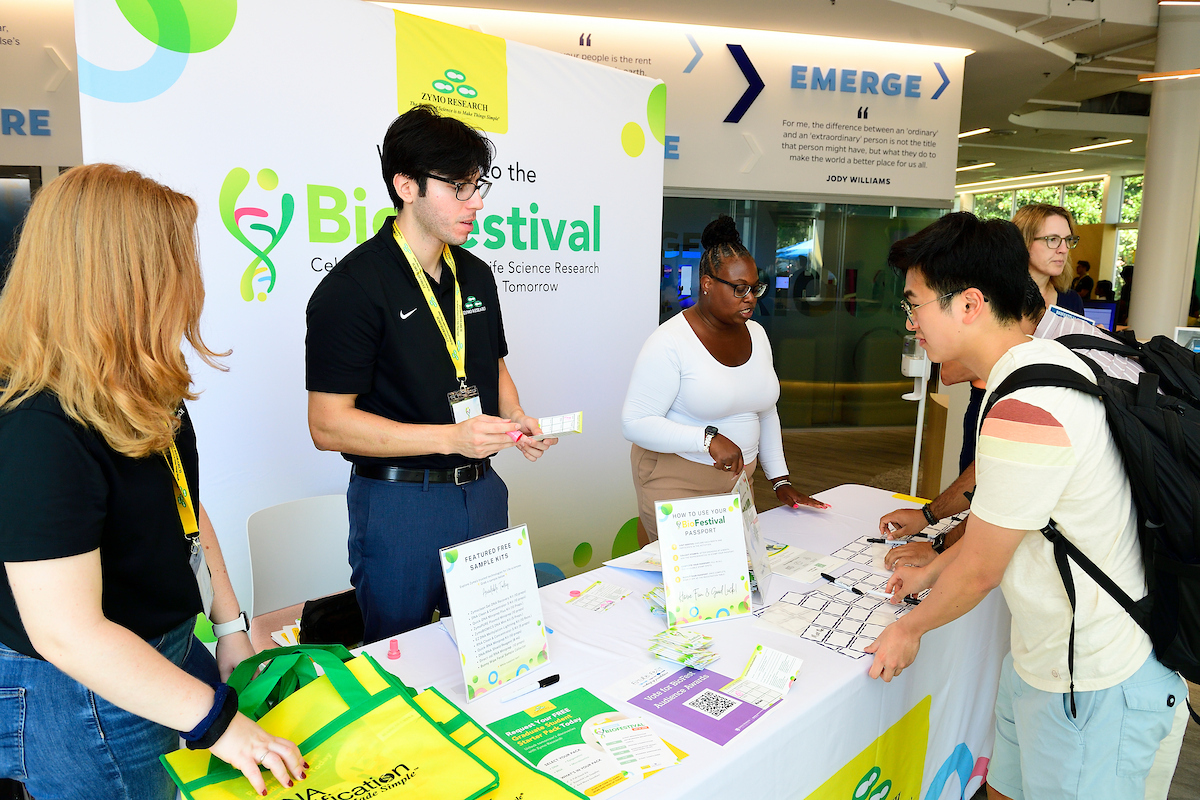
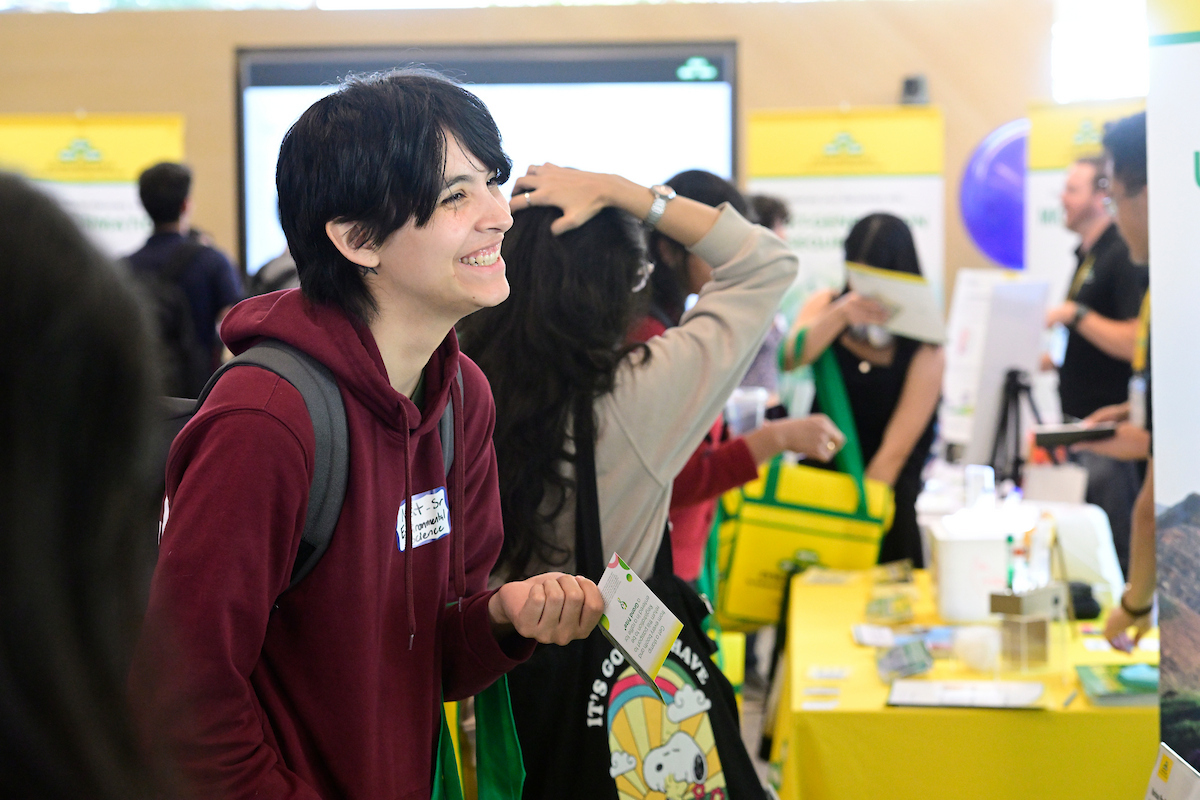
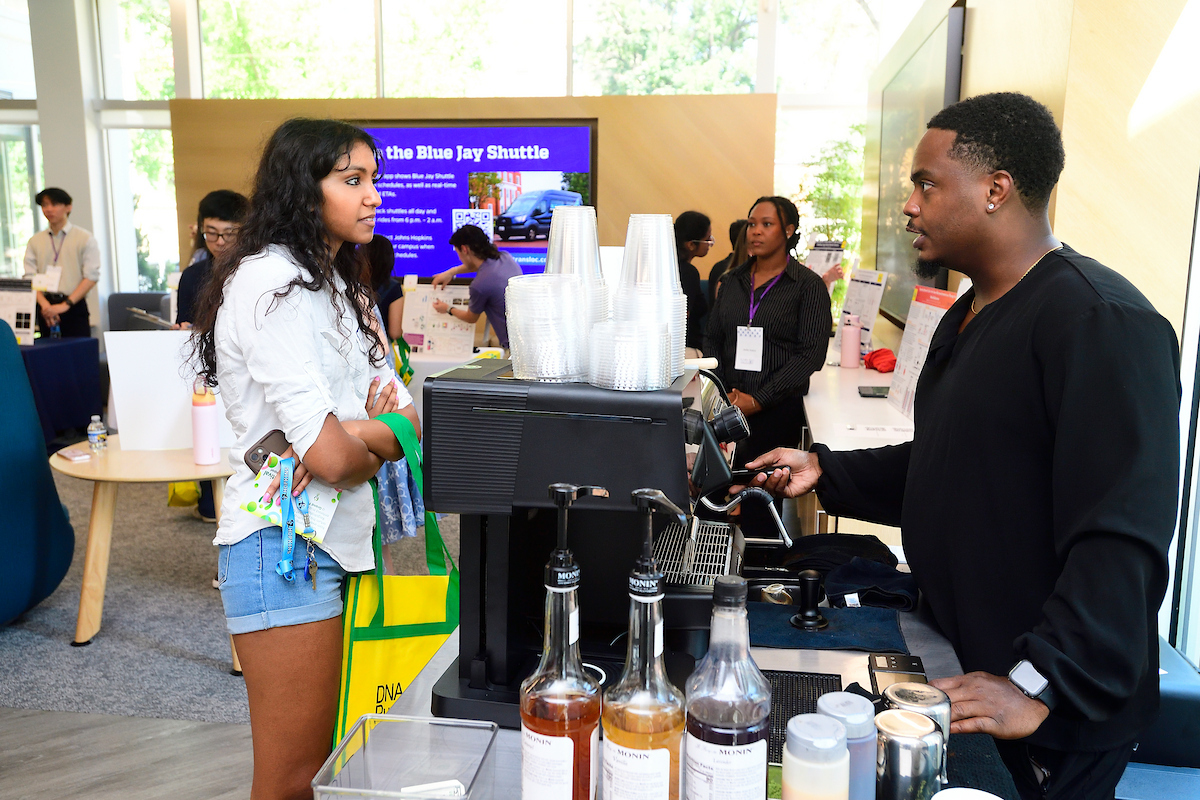
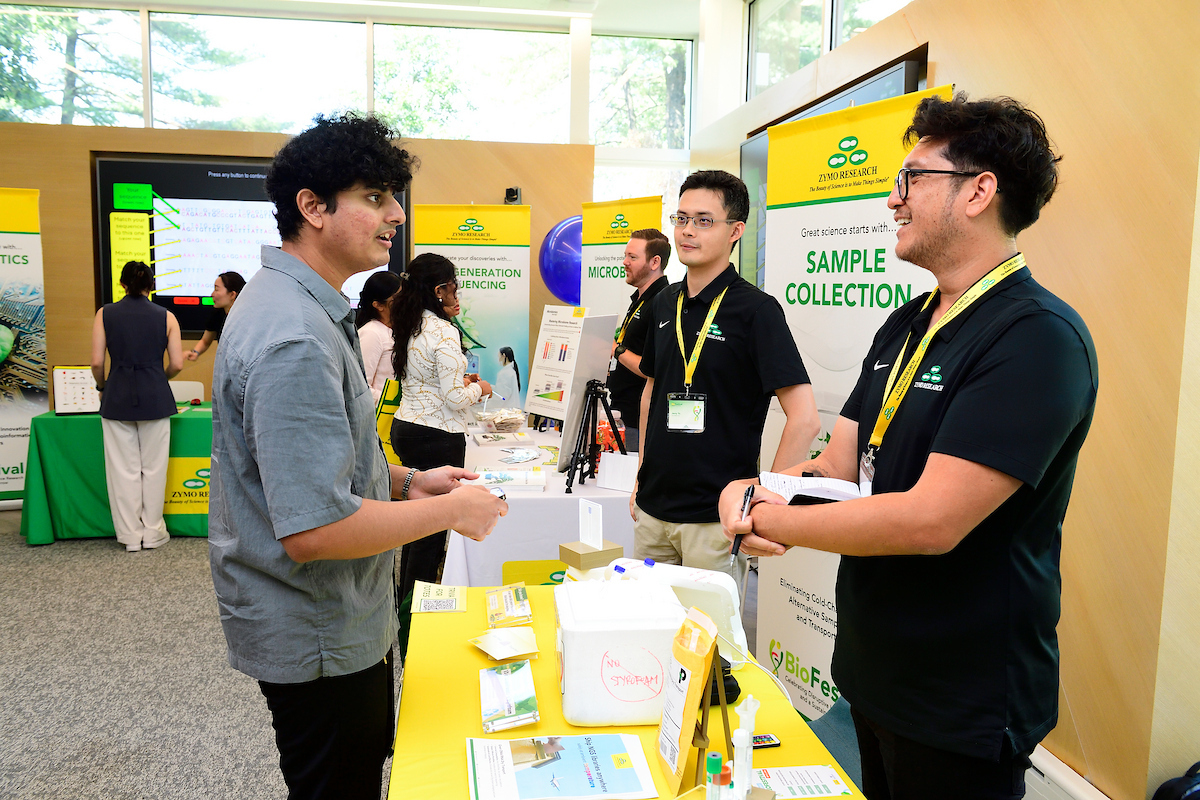
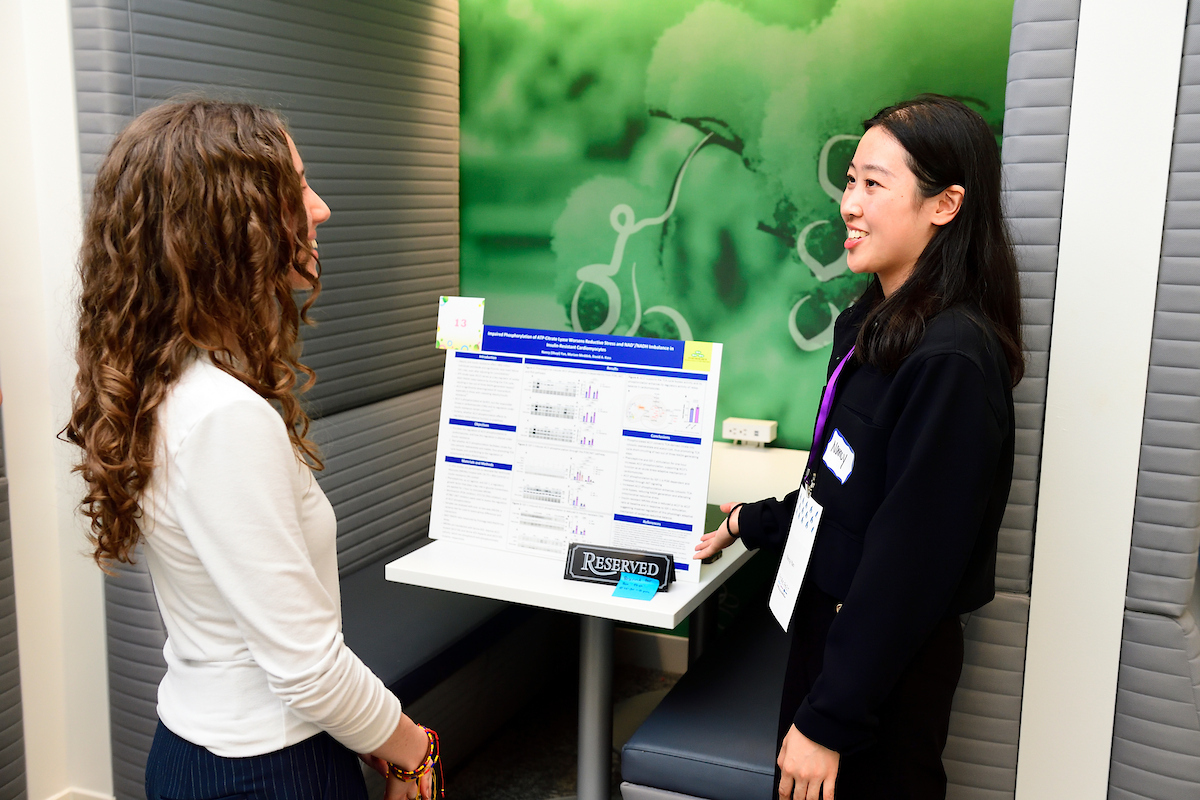
A Day of Science, Sustainability & Student Innovation
The BioFestival featured the BioDisruptor Grant Competition, interactive science booths, and networking opportunities among students, researchers, and biotechnology professionals. Alongside presentations and exhibits, attendees enjoyed complimentary food, student giveaways, and an iPad raffle—creating a welcoming atmosphere that encouraged exploration, participation, and collaboration. Participants engaged with advances in sample preparation, next-generation sequencing (NGS), and sustainable laboratory practices while also taking part in interdisciplinary discussions and exploring career pathways in life sciences.
The BioDisruptor Grant Competition gave undergraduate and graduate student researchers the opportunity to present their projects to a distinguished panel of judges in either a five-minute “lightning talk” or scientific poster format. Judges—leaders from both academia and industry—evaluated entries on originality, impact, relevance, feasibility, and disruptive potential. Approximately $20,000 in Zymo Research product and service credit along with $10,000 in grant funding was awarded to participants. Covering everything from non-invasive cancer diagnostics to RNA-based therapeutics and novel treatments for severe allergic reactions, the winning proposals represented some of the most pressing frontiers in modern biomedical science.
Investing in Tomorrow’s Scientific Leaders
The quality of research on display underscored the university’s reputation as a hub of scientific excellence, and the winning projects stood out for their originality, technical rigor, and clear potential to deliver real-world impact.
Lightning Talk Grant Recipients
-
1st Place – Allyson Chiu, “Multiplex Assay for Early Cancer Detection Using Droplet Digital High-Resolution Melt”
Chiu’s presentation unveiled a multiplexed assay using droplet digital High-Resolution Melt (ddHRM) to detect methylated DNA signatures in blood with extremely high sensitivity. The approach promises earlier, non-invasive detection of multiple cancer types. -
2nd Place – Sareena Naganand, “Flavonoid Lipid Nanoparticles for Improved Transfection of Pancreatic Beta Cells Toward Targeted Treatment of Type 1 Diabetes”
Naganand developed lipid nanoparticles incorporating plant-derived flavonoids that both enhance mRNA transfection of pancreatic beta cells and reduce inflammatory responses. This work has implications for more effective RNA therapeutics in endocrine diseases. -
3rd Place – Betania Arce, “The Bruton's Tyrosine Kinase Inhibitor Acalabrutinib Synergistically Reduces Mortality with Epinephrine When Used as a Rescue Treatment for Anaphylaxis in Humanized Mice”
Arce’s study showed that combining acalabrutinib with epinephrine in humanized mouse models significantly improved survival after severe allergic reactions, suggesting potential for adjunct therapies in anaphylaxis treatment.
Poster Session Winners
- Effram Wei – Phosphorylation and Signaling Effect of Targeted Glycoengineering in HEK293 Cell Lines
- Suhani Kabra – Deconstructing developmental patterning with stem cells
- Surabhi Parte – Repurposing PDE5 inhibitor for osteoporosis.
These poster and lightning-talk projects reflected not just creativity, but technical depth across diverse disciplines—from cancer detection and lipid nanoparticle therapeutics to radiation biology, neuroscience, immunology, dermatology, ophthalmic devices, and even environmental bioremediation. Beyond the awards themselves, Zymo Research supported these innovators with access to advanced sample collection, nucleic acid purification, and next-generation sequencing technologies that are essential for cutting-edge work in genomics, epigenetics, microbiomics, and translational research. This combination of funding and technology aims to accelerate the impact of high-quality student research and help bring bold ideas closer to real-world application.
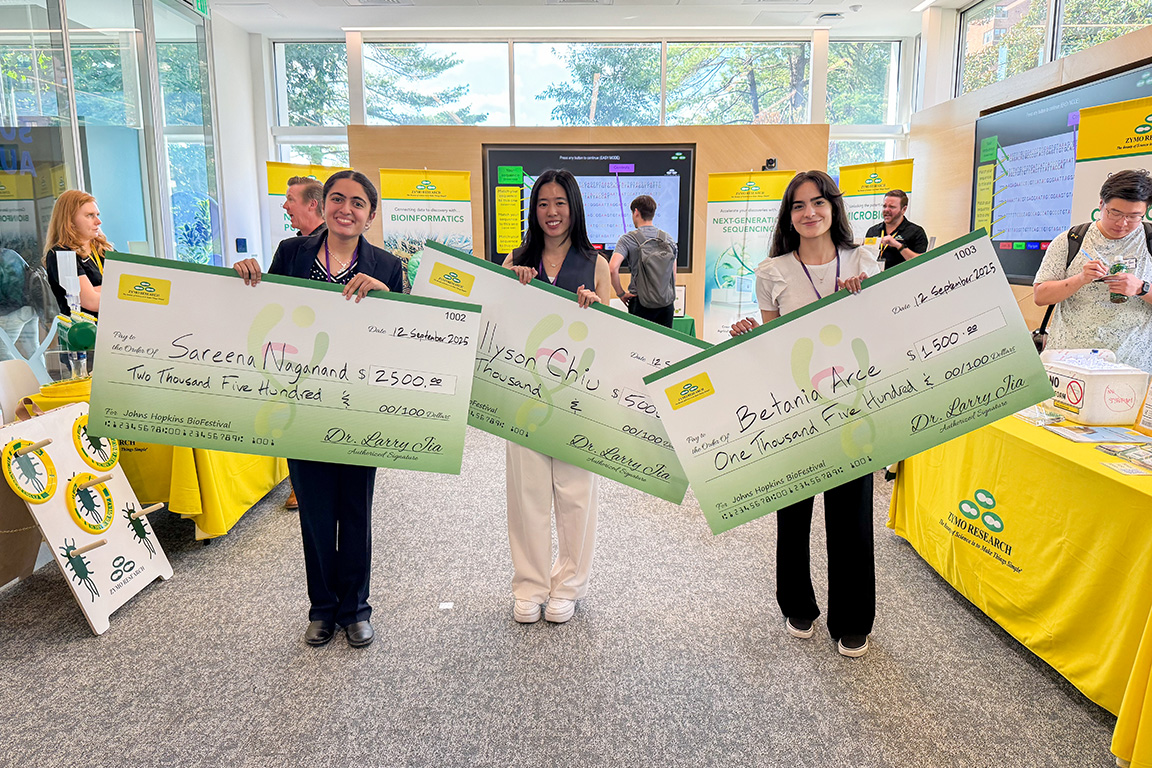
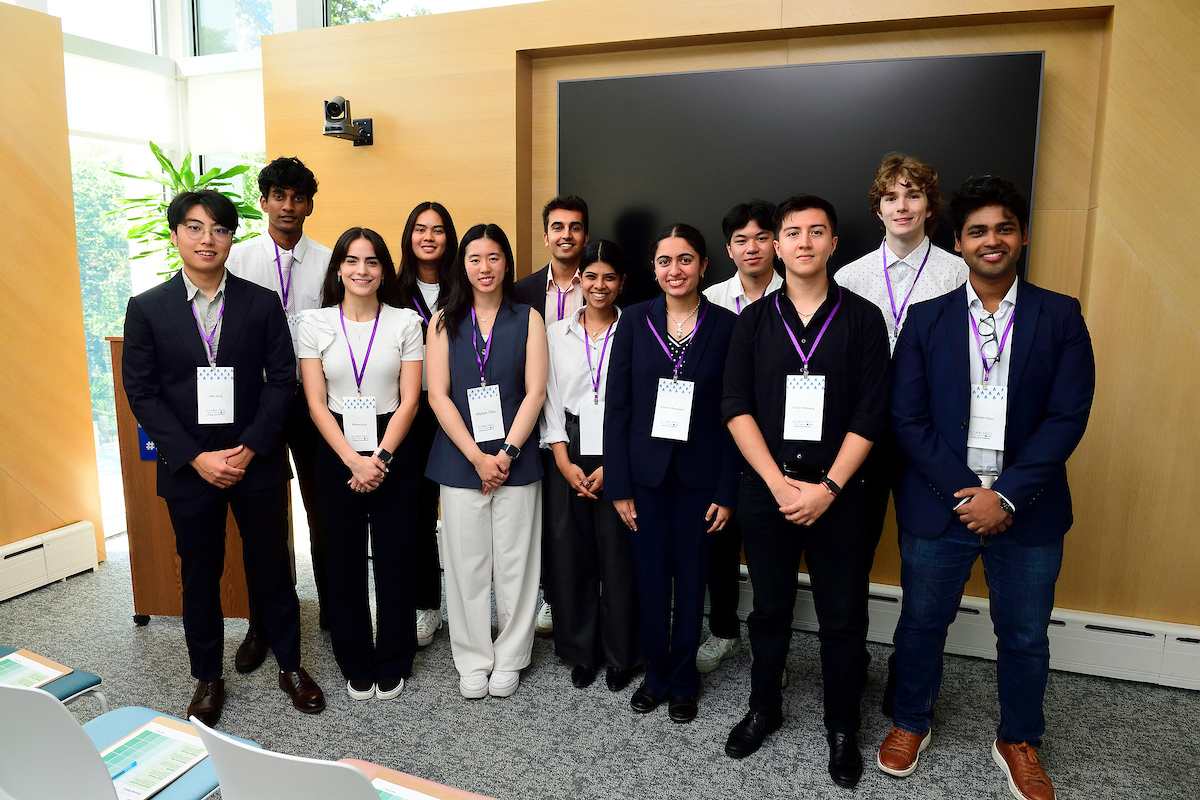
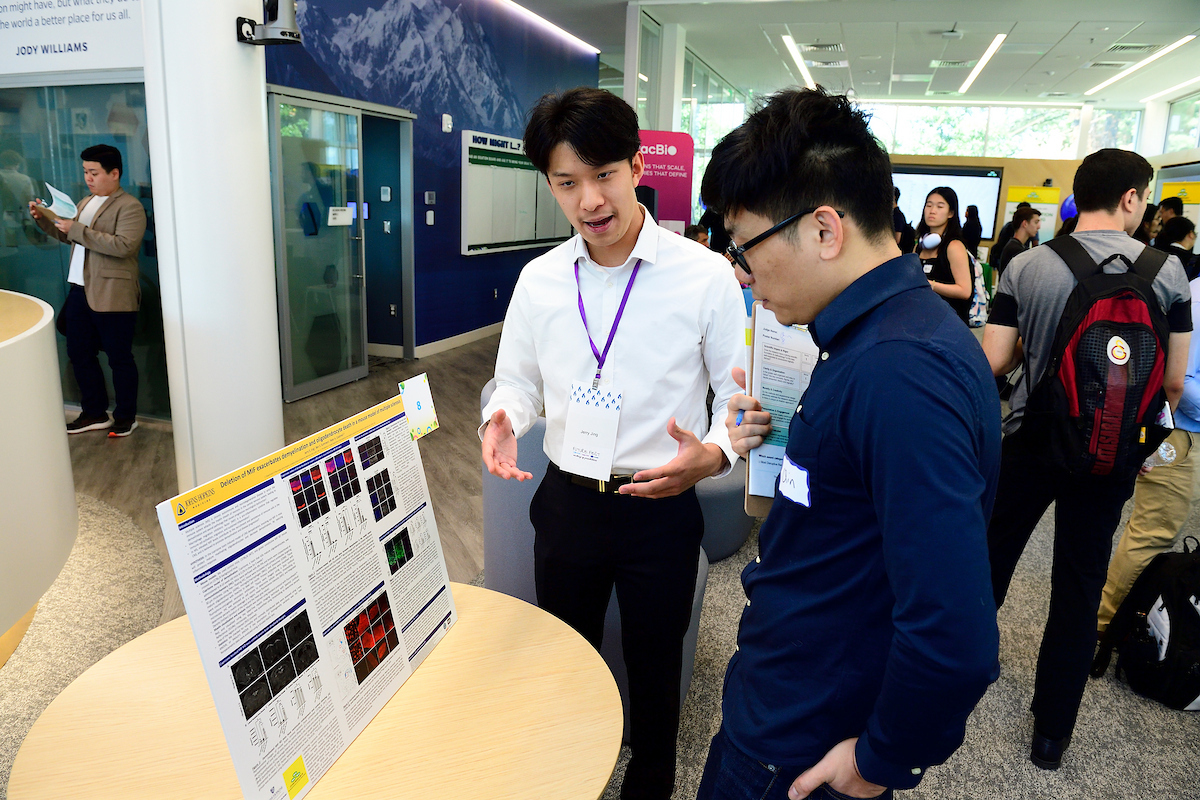
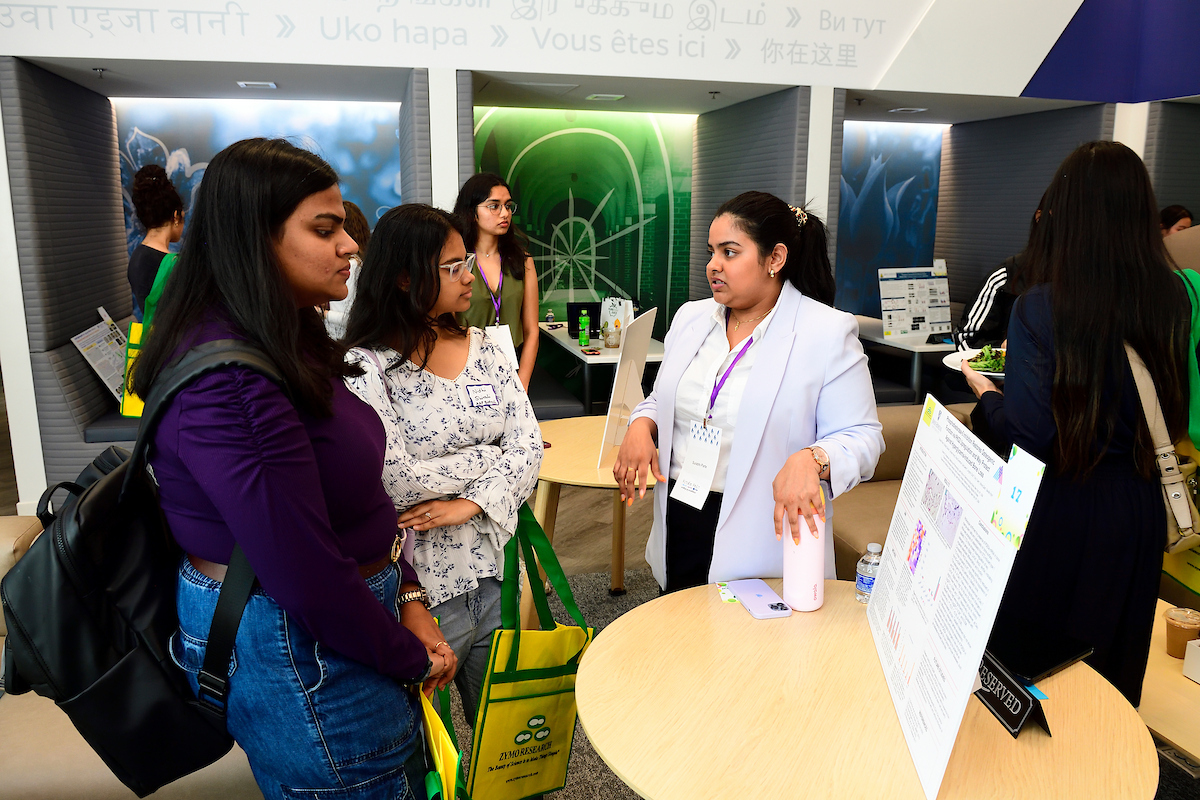
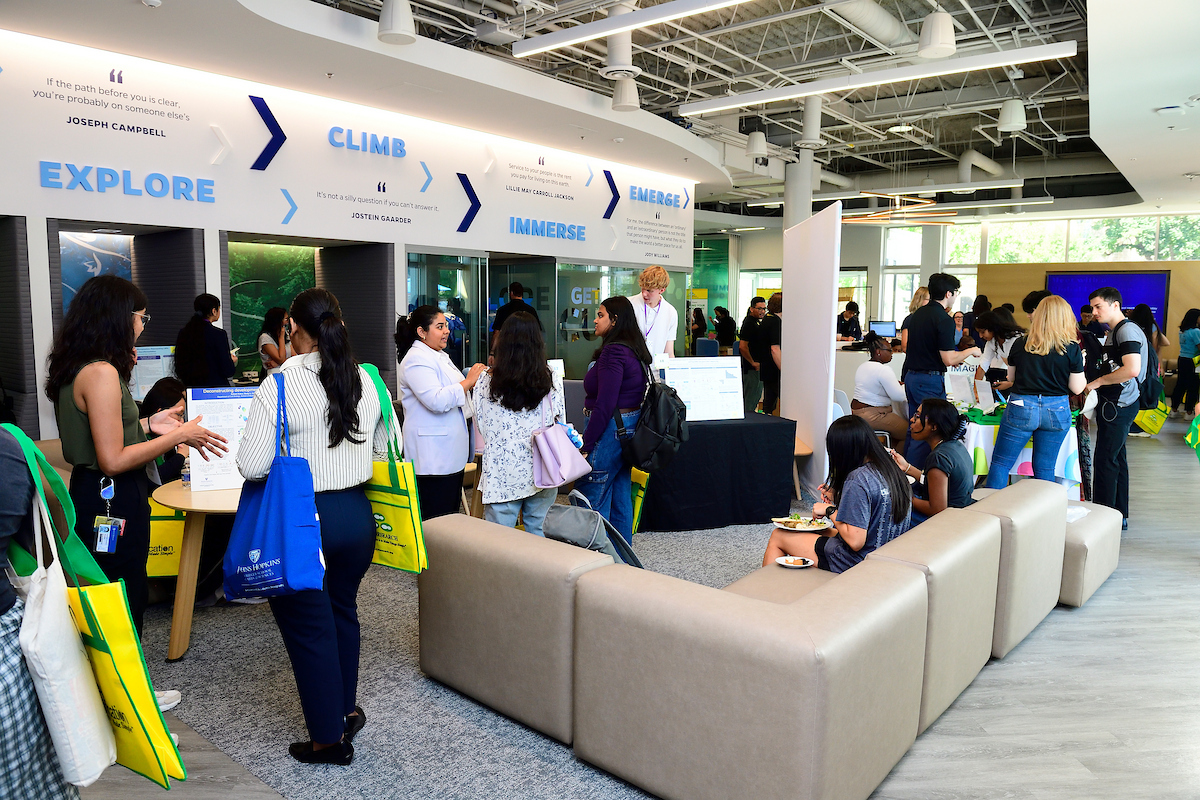
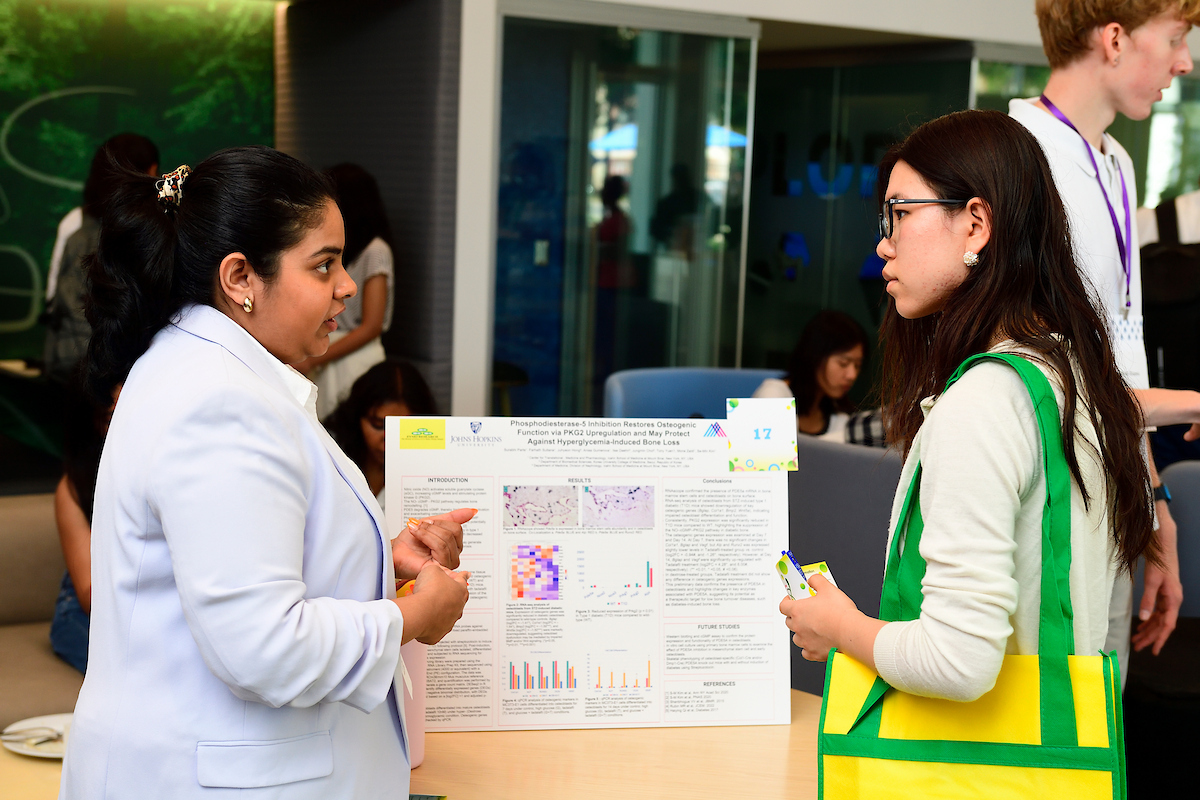
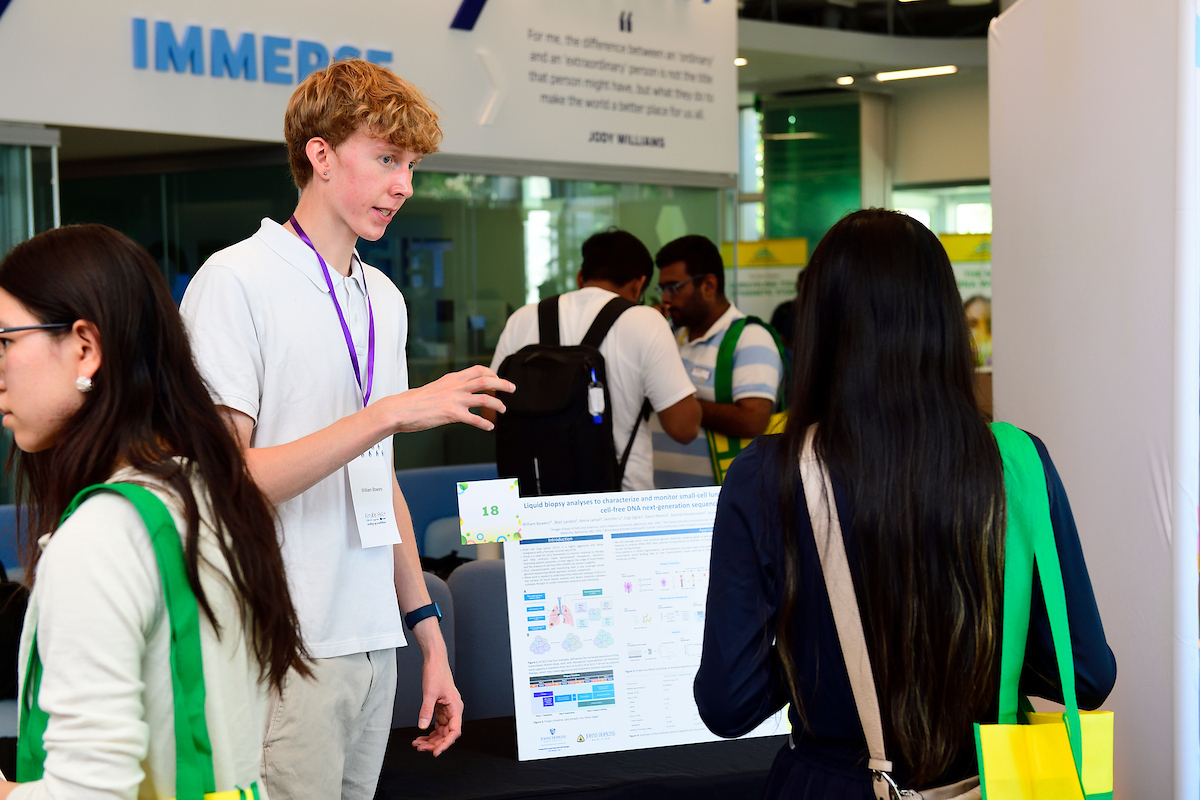
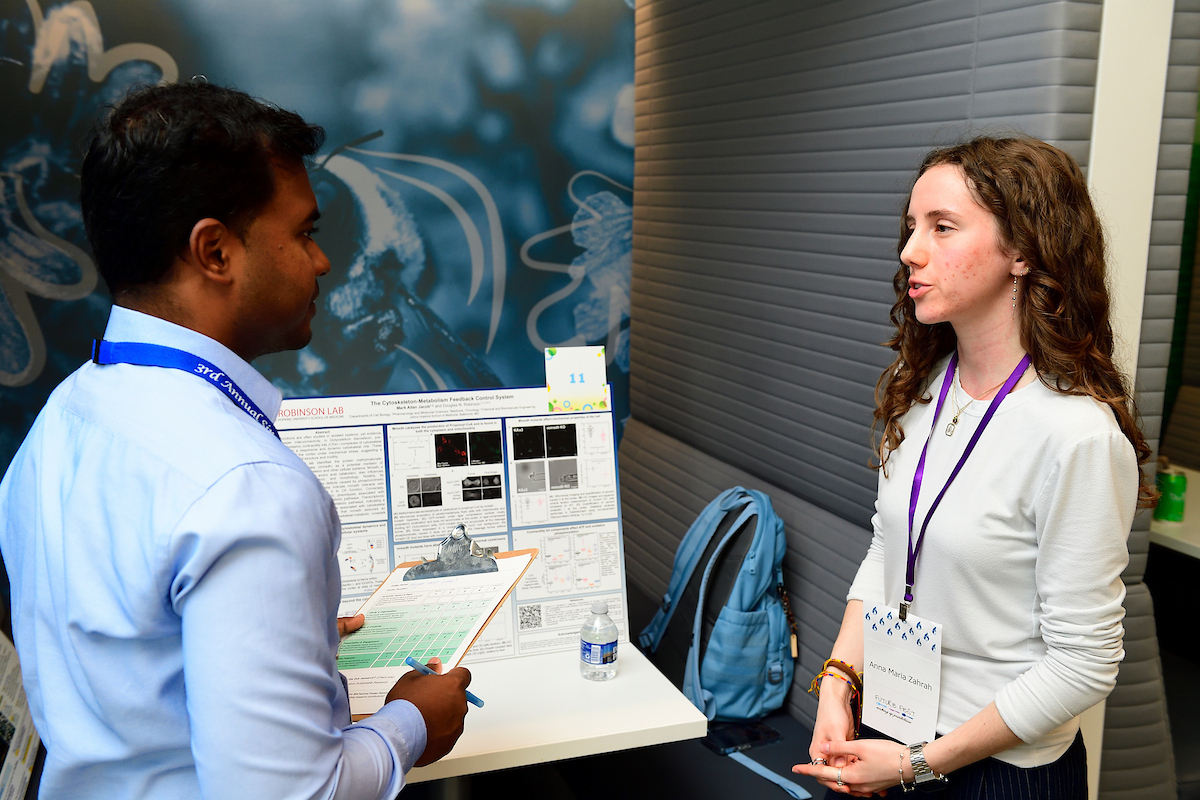
Hands-On Experiences With Transformative Technologies
Interactive booths transformed the BioFestival into an immersive science experience, giving attendees a chance to discover technologies shaping the future of molecular biology. Hands-on activities such as magnetic DNA “fishing,” plasmid ring toss, and a sequencing alignment video game were designed to make complex workflows tangible while sparking lively, science-focused conversations.
Attendees learned how DNA/RNA Shield® enables ambient-temperature stabilization of nucleic acids, eliminating cold chain requirements and reducing lab waste—an approach that blends sustainability with performance. Spin column and magnetic bead-based kits were featured for high-yield extraction of ultra-pure DNA and RNA from challenging sample types, showing how reliable sample prep underpins reproducible science.
Adjacent stations highlighted Zymo’s expertise beyond purification. Visitors explored library preparation solutions for microbiomics, transcriptomics, and epigenetics, as well as streamlined NGS services with integrated bioinformatics, seeing how these tools accelerate projects from raw sample to actionable data. The combination of interactive activities and real-world applications made it clear how these technologies can simplify workflows, improve data quality, and support sustainable research at every step.
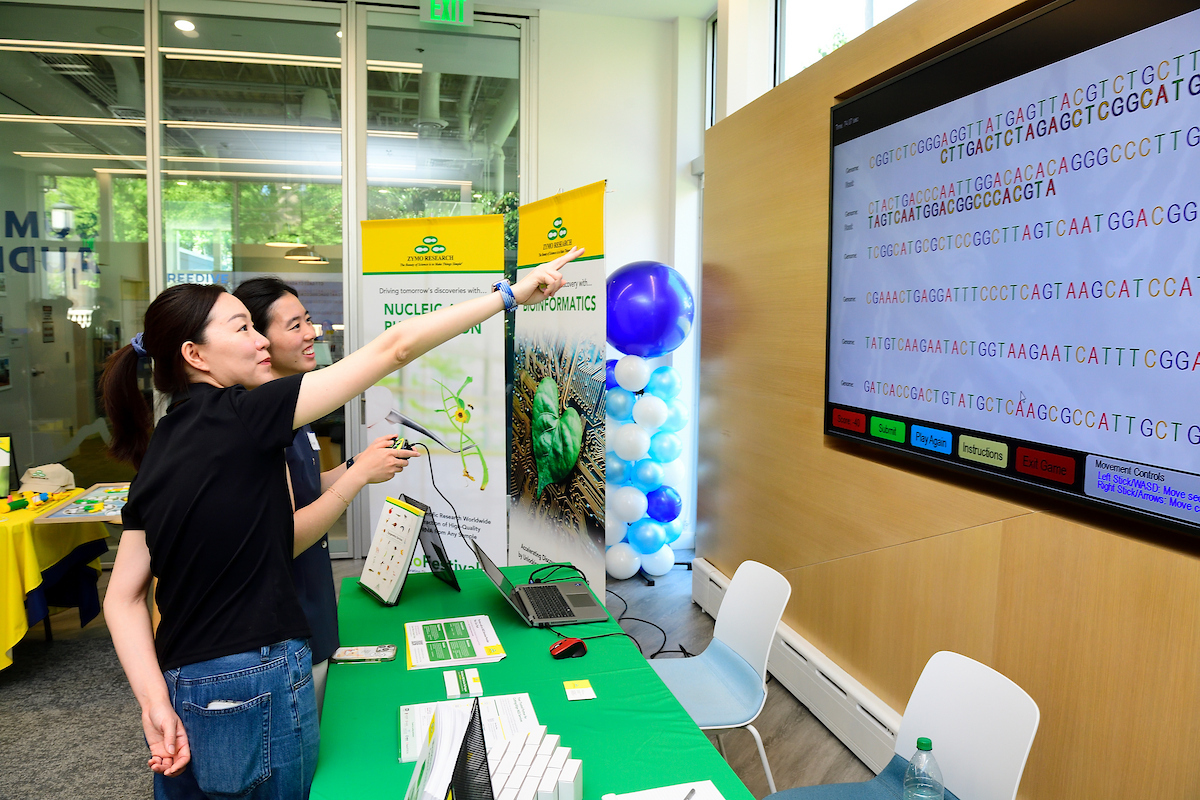
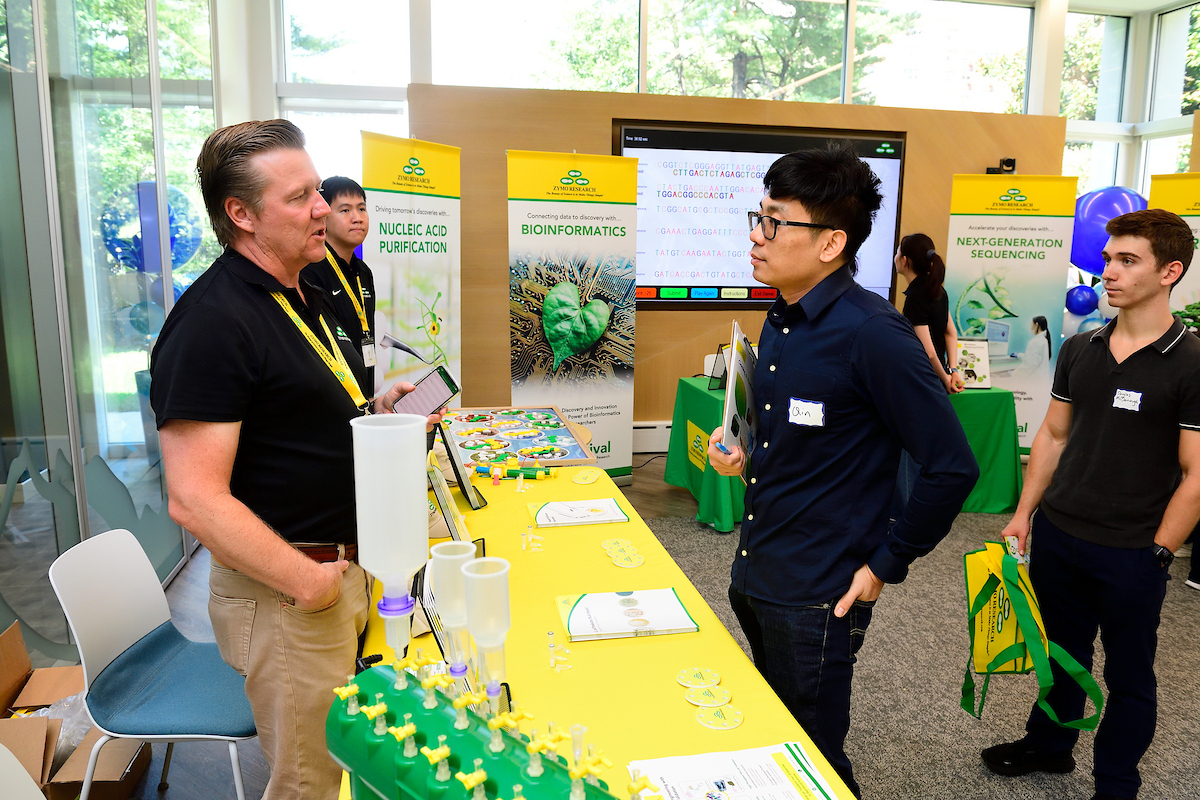
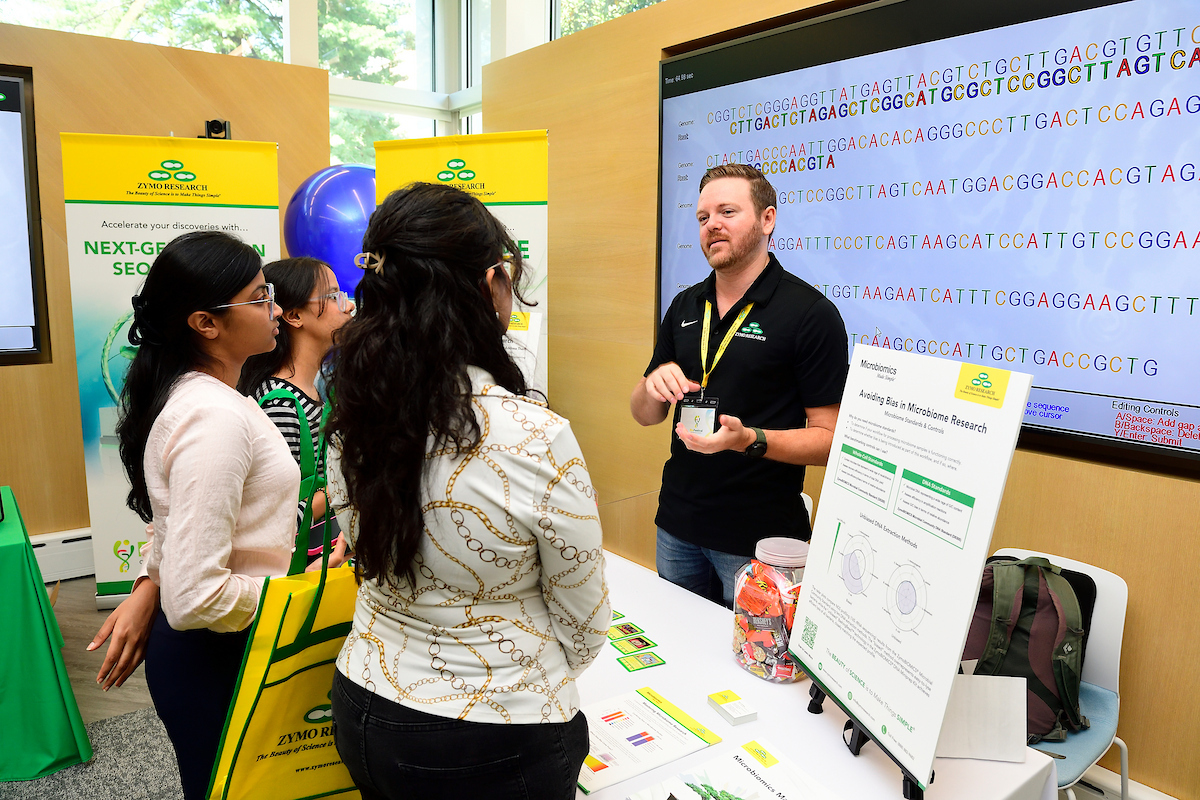
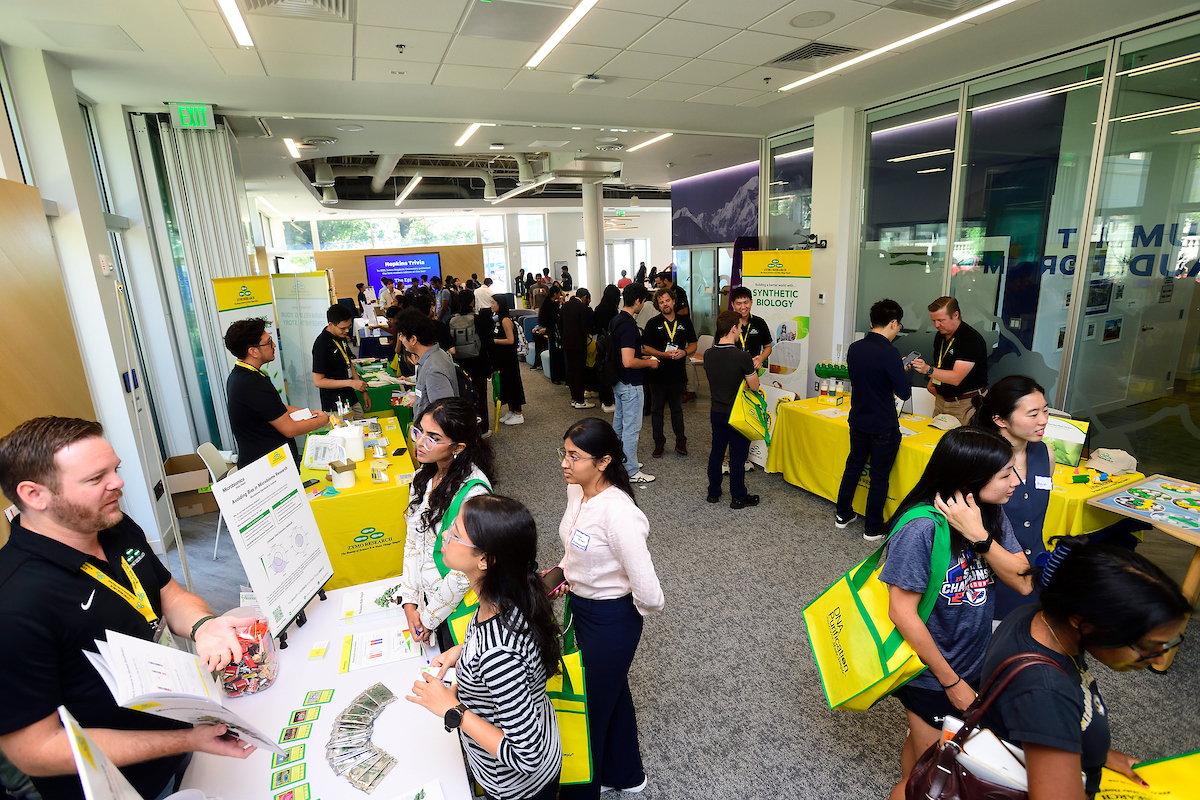
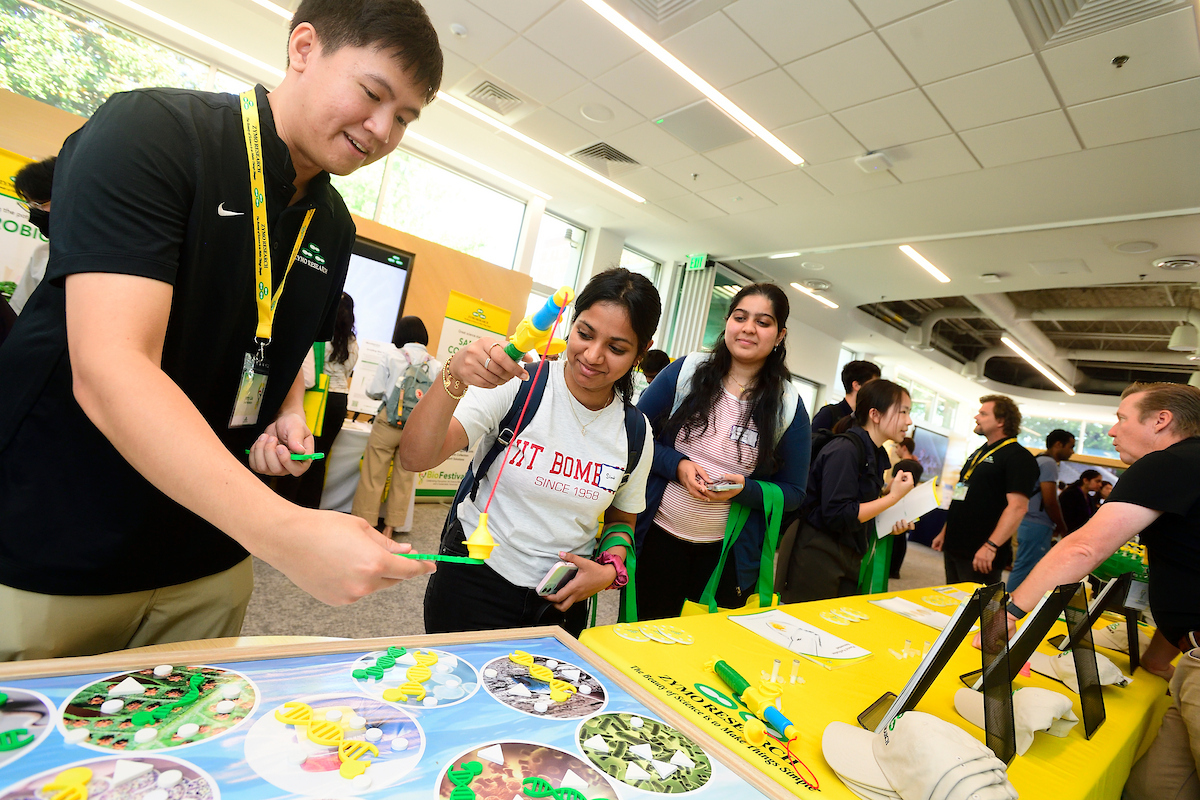
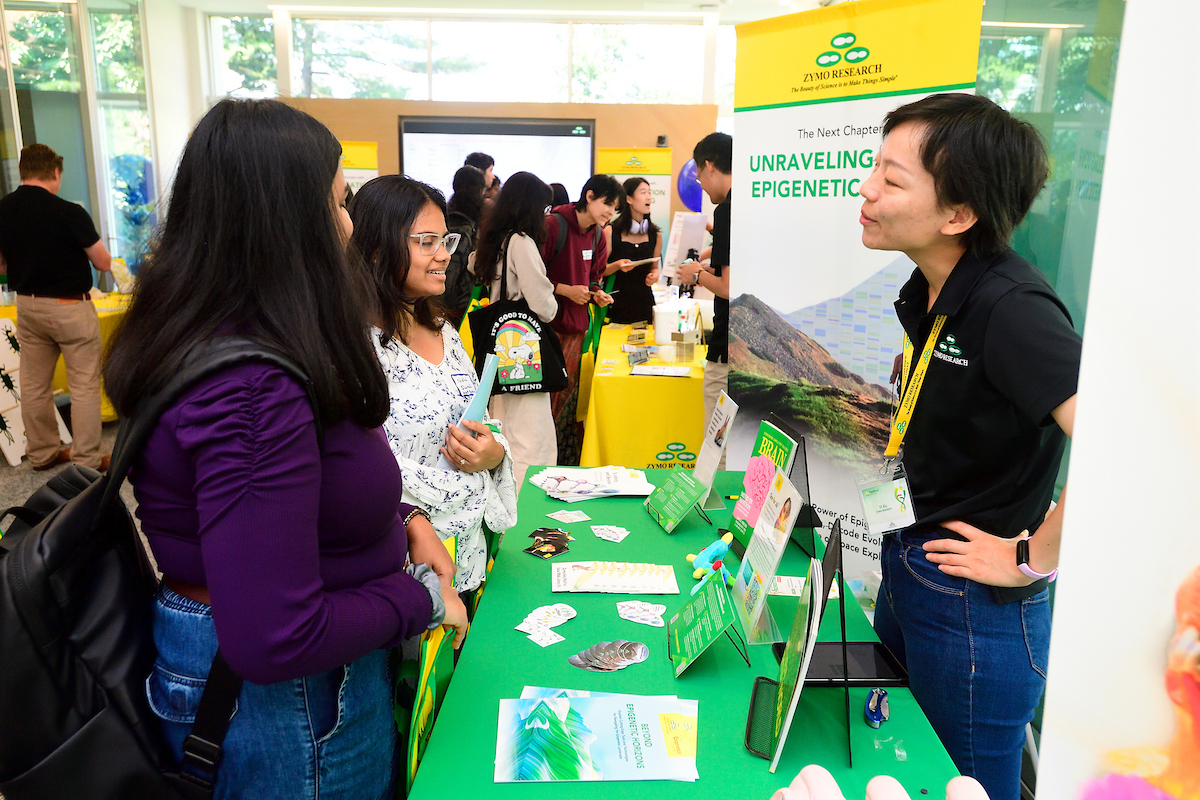
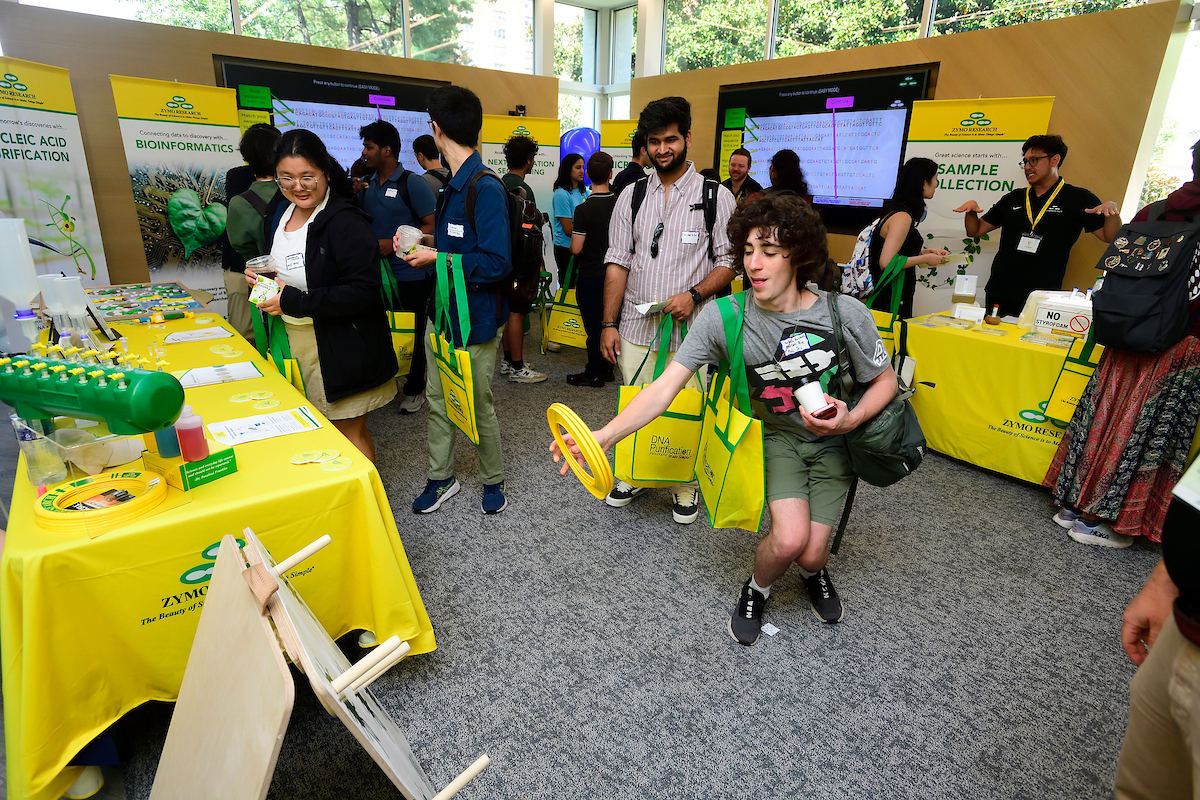
Building Momentum for the Future of Science
BioFestival at Johns Hopkins University demonstrated how fresh ideas, rigorous methods, and supportive environments come together to produce research capable of addressing urgent health and environmental challenges. By providing access to technology, funding, and expert feedback, events like this help ensure discoveries are not only groundbreaking, but also responsible, scalable, and ready for impact.
With Johns Hopkins now part of the growing roster of institutions hosting BioFestival—alongside USC and Caltech—the model continues to expand to additional universities. Each new event brings more students into contact with transformative tools, grant opportunities, and sustainable research practices, building momentum for the next wave of scientific innovation.
Want to host a BioFestival at your institution? Contact us at biofestival@zymoresearch.com
